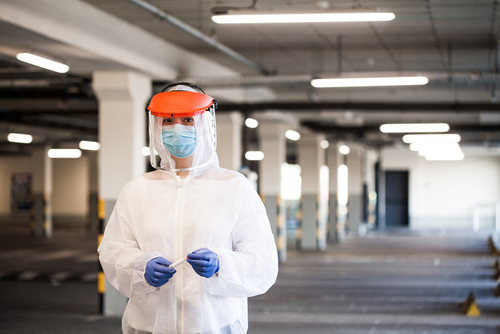When the call comes in to respond to an emergency, there are often a lot of unknowns. Now, with a global pandemic underway, there may be even more questions and concerns with every call. As many of us face the uncertainty of navigating this pandemic, one can only imagine the added strain of being a first responder as well.
First responders and other medical professionals often face these challenges coupled with the added burden of their already challenging profession. With so much of their time being spent caring for others, when do they have time to care for themselves? Mental health should be a priority for every first responder, especially during this time. Here are some things you can do to be more aware of mental health and the mental health of your team.
Recognize When You Need a Break
It can be hard to stop yourself from helping others, especially if you are working in a profession that directly supports the public. However, “burnout” or “compassion fatigue” is very common among public safety professionals. Burnout is a human response to chronic emotional and interpersonal stress at work, while compassion fatigue is when you become exhausted from the constant exposure to the same stressor. Recognize when you’re starting to feel these things, learn to spot the signs in your team members and make sure that you’re addressing these concerns before they have a pronounced impact on your work. After all, the required safety briefing prior to flying instructs us to put on our oxygen mask first before helping others, in the case of an emergency. As a public safety professional, you have a duty of care to yourself so that you can perform life-saving work for your community.
Some of the signs that you might be burning out or experiencing compassion fatigue are as follows:
- Trouble focusing
- Lack of energy or enthusiasm
- Headaches or other body aches
- Resentment of or toward patients and team members
- Irritability
- Depersonalization or feeling like you’re watching yourself rather than being yourself
- Insomnia
- Atypical feelings of apathy or indifference
Create a Stress Resilience Plan
A stress resilience plan is something you create that will help you overcome your stress as a result of being a first responder during this time. It’s a three-part plan:
- Self-Assess: Identify the signs of burnout and give yourself an honest assessment.
- Plan for the Future: Make a list of things you can do to help yourself. Take immediate action to begin working from this list, even if it’s just one small thing a day to start.
- Support: Who you can turn to for support? Identify these support figures and reach out.
Communicate with friends, loved ones, and even professional contacts about your concerns at your discretion. You’re not alone; support is available.
If you notice these signs in a co-worker, reach out and offer to help support each other during these especially stressful times.
Find Ways to be Efficient at Work
Efficiency at work can tremendously reduce stress. With the help of effective public safety software solutions, you can keep track of your workload, training, and much more without skipping a beat. If you have questions about how MdE, Inc.’s software can help optimize your department, please give us a call or schedule your demo today.


